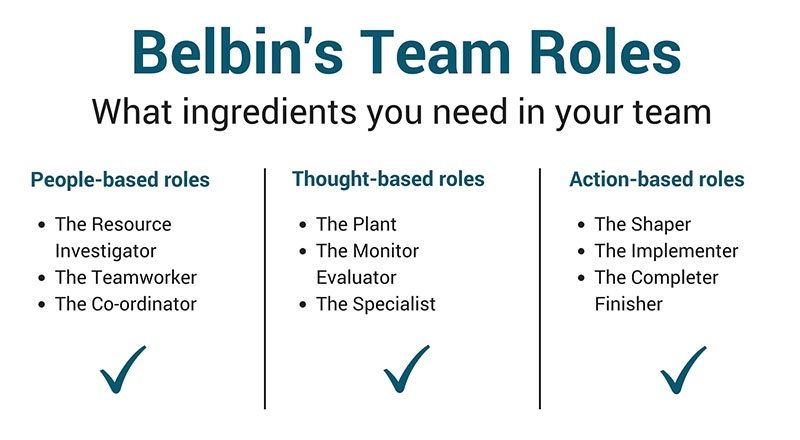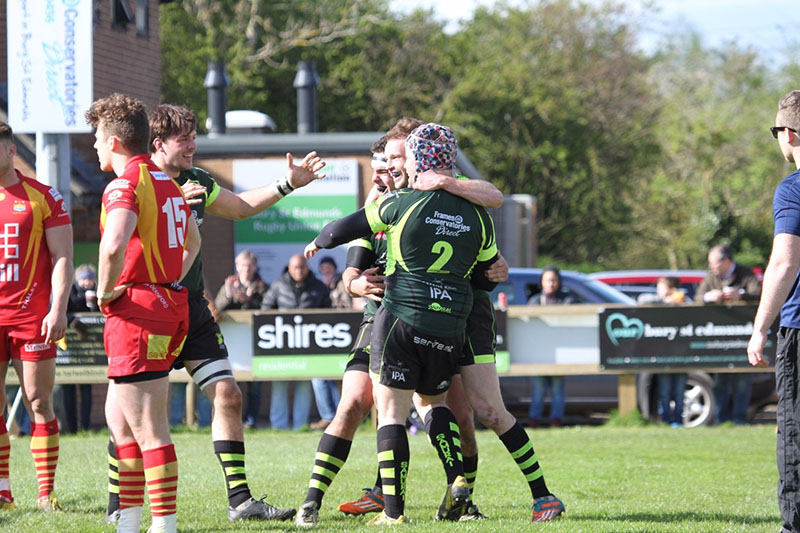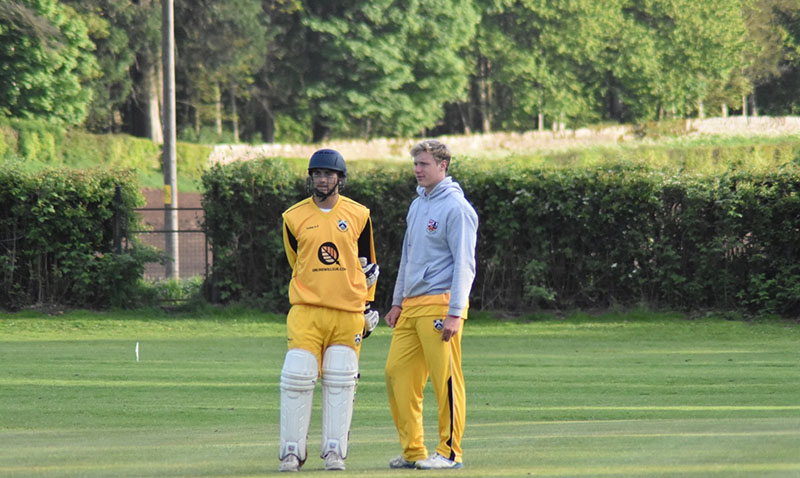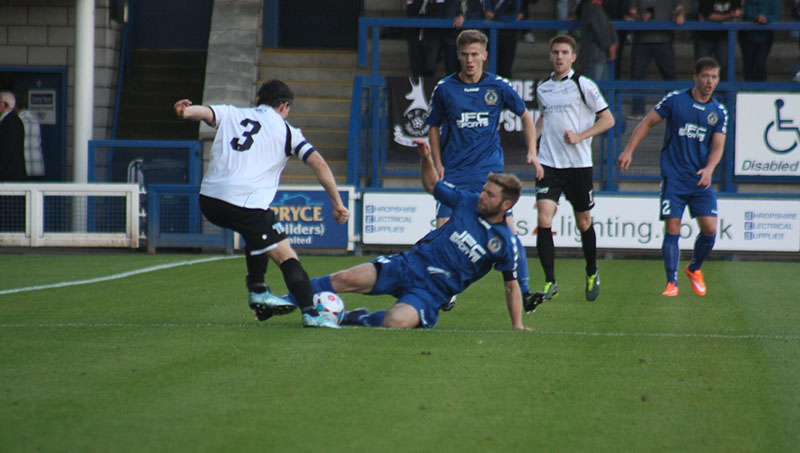Teams are made what they are by the individuals that populate them. Each player uses their particular set of characteristics to adopt a specific team role, complementing the skills of others around them to form a fully-functioning team that performs like a well-oiled machine.
At least that's how Meredith Belbin's famous 'Team Roles Inventory' sees it. Devised in the 1970s, Belbin used his experience of studying at Henley Management College to determine which factors influenced a team's success or failure.
Popular in business-management environments, Belbin's team roles are just as relevant on the pitch as they are in the office.
The inventory defines nine very clear team roles, broken down into three categories - each of which must be fulfilled by a team member in order to contribute fully to the success of that team.
Playing a significant role in our understanding of a team and how it breeds success, each of the nine roles are detailed below – see if your club has all the components of a winning team.

People-based roles
The Resource Investigator
Exploring new options, the Resource Investigator tries to keep your team one step ahead both on and off the field. In a sporting context, they are the ones most likely to look to external sources for inspiration on how a team could move forward.
They are also keen to negotiate new resources and manage external stakeholders, which in turn can help your team achieves its objectives. If your club is on the lookout for new talent or a new coach, the Resource Investigator would be the candidate to take on the search.
Strengths
Extrovert and enthusiastic, Resource Investigators are great for building a network around your club. Developing new contacts could help your team get its name out, drawing the attention of potential new members.
Their enthusiasm can often be infectious. Sharing their findings with others means ideas are generally positively received.
Weaknesses
On the flip side, that enthusiasm can sometimes manifest itself as being overly-optimistic. Also, a Resource Investigator's initial enthusiasm can often burn out, leading to them losing interest. It's important they maintain that momentum throughout, otherwise they might forget to follow up on a promising lead.
The Teamworker
Whenever a team is in a spot of bother, they'll often look to the Teamworker for a rousing spot of inspiration. Reliable, consistent and versatile, the Teamworker is the player in your team who puts 100% into every scenario.

Strengths
The Teamworker really comes into their own in times of crisis. Being diplomatic when other members are at loggerheads, they are able to negotiate between parties and rebuild bridges in the name of collective unity. Providing cohesion between team members, they promote a team-ethos both on and off the field.
Weaknesses
In their efforts to avoid conflict, a Teamworker can become indecisive. Unable to remove themselves from the fence, they tend to take a backward step when pressed to make a decision.
The Co-ordinator
Acting as a default organiser, the Co-ordinator role is reserved for those who provide clarity and focus. Acutely aware of the team's objectives, they are able to identify where their team should be heading and exactly how it can be achieved.
Strengths
Co-ordinators are great at delegating appropriately. Able to identify talent and exactly who should be given certain responsibilities, they are usually mature and able to keep a clear head.
Weaknesses
As is commonly the case with delegators, being allocated work by someone else can tend to rub some people up the wrong way. Plus, there is a danger of over-delegation, which leaves the Co-ordinator with little to do themselves.
Thought-based roles
The Plant
Generally considered the think-tank of the team, the Plant will be your source for new ideas. Always a moment away from a new, fresh approach, they are highly creative members who can solve problems in ever-fascinating and unconventional ways.
Strengths
Able to think freely and without constraint, the Plant comes into their own when the team is in need of an alternative outlook. Taking a look outside the box, they will provide solutions that no other team member could provide.
Weaknesses
A Plant tends to be a little introverted, and that can sometimes mean they are not the best communicators of their ideas. Sometimes absent-minded and forgetful, their ideas are occasionally so far removed that other members may struggle to grasp them.
The Monitor Evaluator
Sport is about passion and that can lead to clouded thinking and irrational decision-making from players who are unable to detach from that.
The Monitor Evaluator is famed for having that exact skill. Removing themselves from the burden of contextual factors, they make an impartial decision.

Strengths
Monitor Evaluators are naturally critical in their thinking and strategic in their approach. Objective in their thoughts, they are able to take a step back and make a decision on what is and isn't working about a team's current approach.
Weaknesses
Not usually one to take the bull by the horns, Monitor Evaluators struggle to inspire players despite their insightful conclusions. Can also often be thought of as overly critical of the team.
The Specialist
With an encyclopedia knowledge of their given sport, the Specialist brings in-depth knowledge and analysis to a team's strategy. Able to call upon extensive wisdom and skills in a given area, they are looked upon as an expert in the team.
Strengths
Single-minded in their approach, dedicated at all times and utterly professional, the Specialist can be relied upon to complete their job with the minimum of fuss.
Weaknesses
Specialists are known to get bogged down in the details. With such depth to their technical knowledge, they are prone to over-burden people with the tiniest thought – leading to them losing sight of the overarching objectives.
Action Orientated Roles
The Shaper
As a respected and active member of the team, Shapers are those that motivate others in pursuit of their goals. Aptly seen as 'get up and go' types of characters, they are rarely complacent or accepting of anything below perfection. To a Shaper, an obstacle is seen as a fresh challenge, an opportunity to embrace new ideas and progress as a unit.
Strengths
Courageous and inspirational, Shapers grab a team by its collective scruff of the neck and drive them forward. Extroverted and good communicators, other members engage and mirror their enthusiasm and never-say-die attitude.
Weaknesses
That extrovert character can sometimes boil over into over-enthusiasm. They may become argumentative if they feel someone isn't pulling their weight, and could offend a fellow member if they become too aggressive in their approach.
The Implementer
We've covered a number of roles for players who strategise and philosophise on a team approach, but little on actually getting new ideas across the line. That is where the Implementer comes in. Ideas, thoughts and concepts become actions and plans – all thanks to the Implementer.

Strengths
Typically, they can be quite organised and disciplined in their approach. Setting out a systematic plan for putting ideas into practice, they can be counted on to get a job done – and ensure everyone else is able to contribute.
Weaknesses
As a rigid and possibly conservative member of the team, an Implementer is sometimes reluctant to change. Once a plan has been put in place, they plan to stick to it until the end, leading to inflexibility if things change.
The Completer Finisher
Almost like a project manager, the Completer Finisher ensures that a plan is seen through to the end as thoroughly as possible. Combing through a project with absolute precision, their eye for detail ensures nothing has escaped the team's attention.
Concerned with getting the job done well and on time, a Completer Finisher pushes the team onwards until the job is done.
Strengths
Organisation and an eye for detail are key to a successful Completer Finisher. When ideas and concepts have funnelled through all of the above team roles, they are on hand to polish, perfect and see it through to completion.
Weaknesses
Completer Finishers are often associated with worrying unnecessarily. Agonising over every last detail, their extreme levels of perfection can sometimes turn into a negative. They are also generally unwilling to delegate.
The importance of team roles
Researched over the course of nine years, Belbin considers each of these team roles as equally vital to building a successful team. As an individual, it's important to recognise your particular role and embrace it, allowing you to manage strengths and weaknesses and contribute to the best of your ability.
Without even one of these team roles, your squad can start to become unbalanced and weaknesses will be exposed. If too many members have the same skillset, they may become competitive with one another when cooperation is more appropriate.
Given the importance of a good team ethos, recognising these roles and ensuring every base is covered translates into a more successful team out on the pitch.
More coaching content from Pitchero
Looking to mould your club into a collection of champion teams?
Study our guide to coaching styles, team building ideas and tips for becoming a top team captain to transform your club into a beacon of success.

